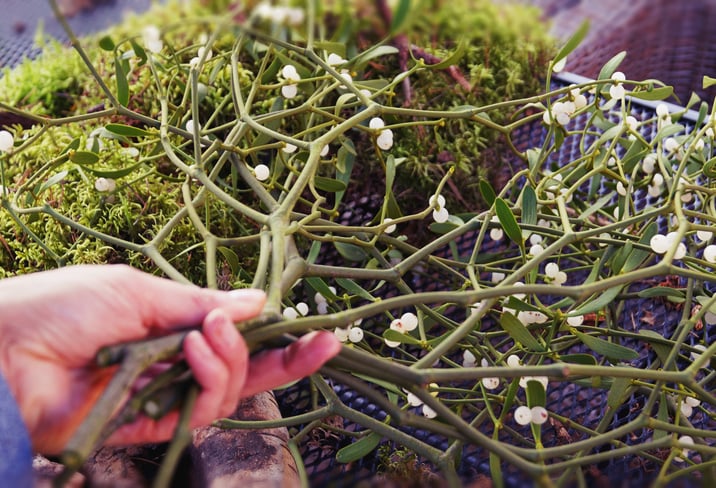
A Glimpse into Research at Johns Hopkins University
Introduction: What is IV Mistletoe Therapy?
Mistletoe, a semi-parasitic plant with a long history of traditional use, has recently gained attention for its potential therapeutic benefits in cancer treatment. Researchers at the renowned Johns Hopkins Kimmel Cancer Center conducted a groundbreaking phase I trial on intravenous mistletoe extract, Helixor M, in the United States. This trial aimed not only to evaluate the safety of mistletoe extract but also to explore its impact on the quality of life and disease control in patients with advanced and treatment-resistant cancers.
Key Findings: of the Mistletoe Study by Johns Hopkins University
The small-scale study, reported online in Cancer Research Communications, included 21 patients with various advanced cancers. The researchers, led by Associate Professor of Oncology Channing Paller, used dose escalation to determine the maximum safe dosage of Helixor M for subsequent clinical trials. The intravenous mistletoe extract was administered three times per week until disease progression or unacceptable toxicity.
Improved Quality of Life: Despite the primary focus on safety, the researchers observed a notable improvement in the overall quality of life among the participants. Patients reported enhanced well-being and vitality, as documented through a structured questionnaire.
Disease Control: Encouragingly, the trial documented instances of disease control in the form of stable disease. Some participants experienced stable disease for an average of 15 weeks, with tumors in three individuals decreasing in size and remaining stable for two to five months.
Manageable Side Effects: The most commonly reported side effects included fatigue, nausea, and chills. Significantly, these side effects were manageable and did not compromise the overall well-being of the patients.
Next Steps and Implications for Mistletoe Extract
The phase I trial's success has paved the way for subsequent phase II studies, where intravenous mistletoe extract will be explored in combination with chemotherapy. The potential synergistic effects could further enhance its efficacy in cancer treatment. However, additional funding is required to advance these studies.
While mistletoe extract has been used in Europe as a complementary medicine approach to cancer treatment, it is crucial to note that it is not currently FDA approved for cancer treatment in the U.S. Despite this, it is listed in the Homeopathic Pharmacopoeia and is offered in integrative care clinics.
Conclusion:
The Johns Hopkins study marks a significant step in bridging the gap between traditional use and scientific evidence regarding mistletoe extract's role in cancer therapy. The promising results from the phase I trial provide a foundation for further research, emphasizing the need for additional funding and comprehensive laboratory studies to better understand the mechanisms behind mistletoe extract's effects.
Reference:
"Phase I Trial of Intravenous Mistletoe Extract in Advanced Cancer." Cancer Res Commun. 2023 Feb 28;3(2):338-346. doi: 10.1158/2767-9764.CRC-23-0002. eCollection 2023 Feb.
Patients interested in mistletoe therapy are welcome to schedule a visit with Dr. Sadrolsadot ND, PhD to discuss its suitability for their specific case, ensuring a comprehensive and personalized approach to cancer care.
 Dr. Paymon Sadrolsadot, ND, PhD is a highly skilled naturopath with over 20 years of integrative medicine experience. He has professional experience as a physician, acupuncturist, educator and clinician. He combines Eastern and Western medical philosophies with integrative medicine in his approach to naturopathic oncology.
Dr. Paymon Sadrolsadot, ND, PhD is a highly skilled naturopath with over 20 years of integrative medicine experience. He has professional experience as a physician, acupuncturist, educator and clinician. He combines Eastern and Western medical philosophies with integrative medicine in his approach to naturopathic oncology.
.png?width=305&height=132&name=NIHAlogoBLUE_3_transparent%20(2).png)

